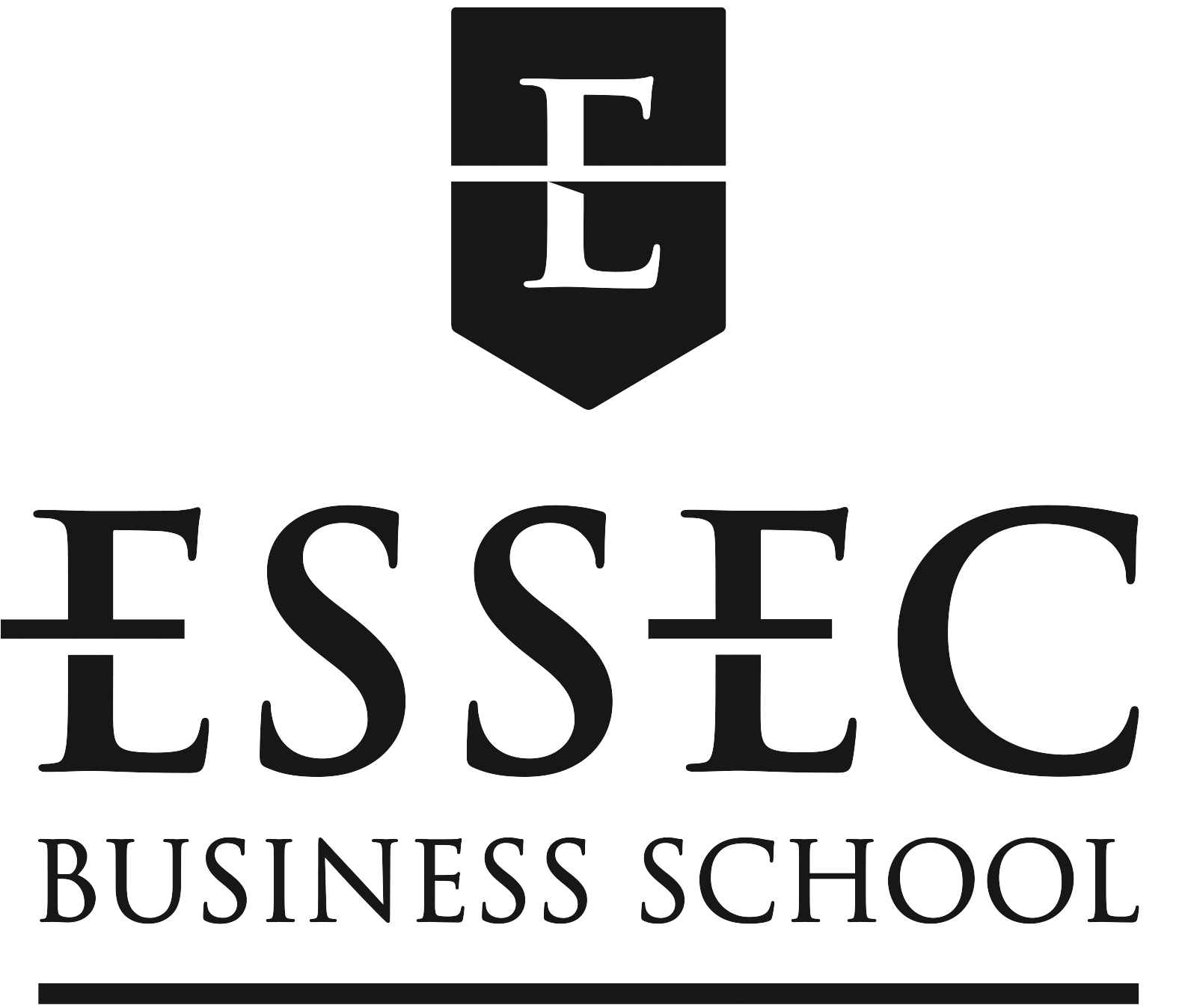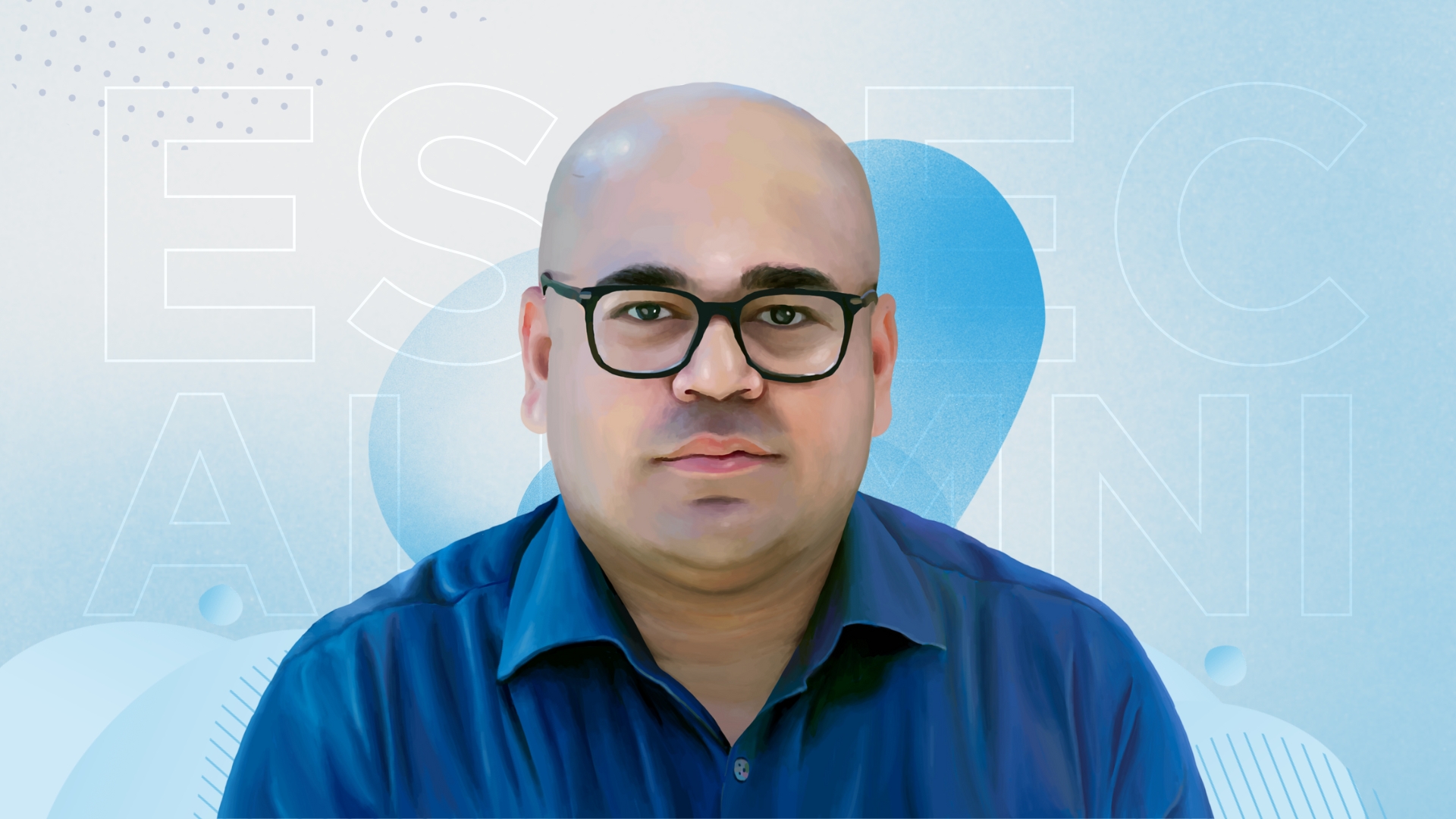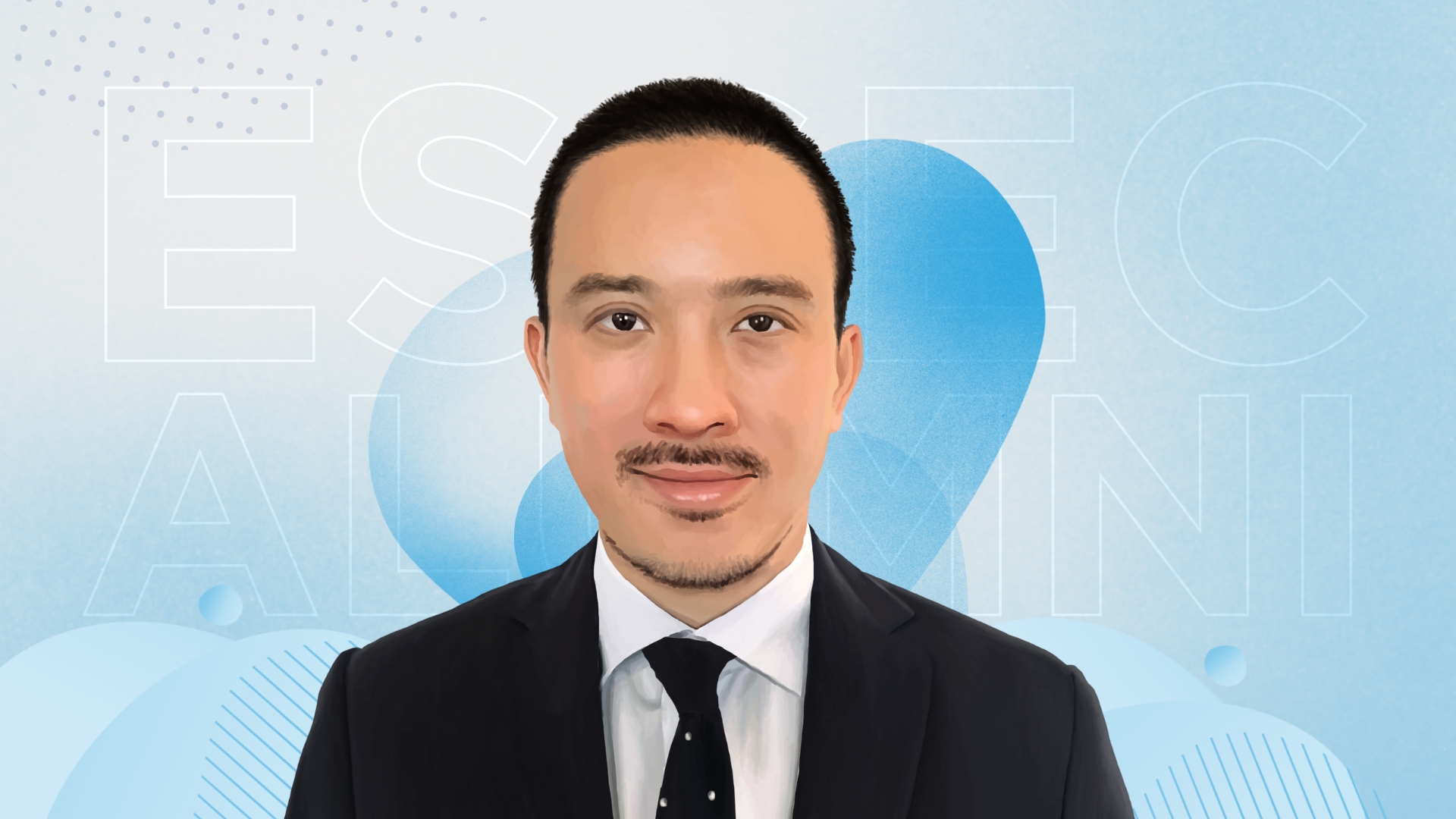- Pascal Lambert oversees Société Générale’s broad range of business verticals as Singapore Group Country Head.
- Globetrotting career includes stints in eight different countries and through various crises.
- ESSEC grounding gave him vital leadership tools.
With the pandemic raging, leading French investment bank Société Générale came up with a lockdown-friendly concept to mark World Music Day this year.
To showcase the musical skills of its staff, the firm asked employees to film contributions at home. The eclectic results—renditions of 150 songs—range from takes on Mississippi Delta blues to recitals of Japanese classical compositions.
In Singapore, Pascal Lambert, the bank’s Group Country Head and Head of Southeast Asia and India, chipped in with his funky take on “Superstition,” Stevie Wonder’s 1972 classic.
Tuning the Sound of Leadership to Fit the Music
Virtuoso guitar chops may not be the first thing people associate with high-powered bankers. But Pascal’s abilities have been honed as a gigging musician, most recently as a now-defunct Singapore-based combo Savoy Truffle member.
Therefore, it’s no surprise to see him pick out the notes to the familiar riff on his Gibson Les Paul with the same dexterity he has applied to stints with world-leading financial institutions, including Indosuez, Bear Sterns, JP Morgan Chase, and, now, Société Générale.
“I’ve spent time in many different countries, and I can say that versatility is key to a successful working process,” he says. “In many ways, the world has shrunk and become more interconnected. Even so, there are very different ways of doing business from nation to nation. Therefore, mobility requires both cultural curiosity and a lot of flexibility.”
With Société Générale deploying its expertise in everything from corporate and investment banking to asset management, securities services, global transaction banking, and specialized financial services, Pascal’s position demands proficient multi-tasking.
But Pascal has yet to be adaptable throughout his globetrotting career. Since graduating from ESSEC with a finance specialization, his working life has seen him assume leadership positions in locations as diverse (and divergent) as Djibouti and Dublin.
There’s No Manual for Leadership
In recent times, Asia has dominated his focus. With the region establishing its credentials as one of the world’s most dynamic financial centers, Pascal has had his hand on the tiller for leading banks, steering strategy, and negotiating the often-torrid currents of the global financial markets.
His bond with the region, meanwhile, runs deep. His wife is from Asia, while his father and grandfather worked for the colonial administration in French Indochina. The period, though, has been challenging.
“The key to successful leadership,” Pascal reminisced, having survived various global catastrophes, “is simply positivity.” He added, “Nobody will teach you to remain positive when facing difficulties. It must be part of your character. Your team is looking at you to lead.”
One of his leadership gravest tests came when Bear Sterns fell in the 2008 global financial crisis. The long-established American institution was once one of the most respected names in banking. By 2008, however, it was no more—fatal exposure to the mortgage-backed assets central to the subprime mortgage crisis made it one of the first and most high-profile casualties of the GFC.
Having just arrived for his second stint in Hong Kong as Chief Operating Officer for Bear Sterns the previous year, Pascal was no sooner in the door than he helped smooth the firm’s merger with JP Morgan Chase.
“There’s no manual for operating in that kind of situation,” he says. “But some of the best leadership lessons come from adversity, which I had been taught about at ESSEC. It has enabled me to retain a positive outlook at all times. You need to be able to show leadership to your people at a time when your people are looking at you for leadership.”
ESEEC’s Lifelong Impact
Forty years have now passed since Pascal graduated from ESSEC. In 1980, when he graduated, the Internet was just a series of primitive protocols. WhatsApp sounded more like a greeting than a messenger service, and Stevie Wonder was duking it out with Billy Joel and Shalimar in the Billboard Hot 100. It’s an entirely different world.
The passing of time has kept Pascal’s appreciation of the academic grounding given to him by ESSEC and the horizons it expanded.
“The quality of the courses was very motivating for me,” he recalls. “I was very young when I started there and had no clear vision of what I would do. To learn about finance and economics in such an environment was inspiring.
It gave me tools that I could apply in the real world. It enabled me to follow a path that has led me—albeit with a few twists and turns along the way—to where I am today.”
Where he is today is a culmination of his achievements. Despite his fulfillment, Pascal is far from ignorant of the difficulties facing those who might wish to follow in his wake. “The world today is more complex,” he says. “There is access to many opportunities and a lot of competition. It’s a long path to the top, but it’s a rewarding one.”
RELATED POSTS
ESSEC Alumni Vanessa IIoste: Human Resources Vice President Advocates for Diversity, Equity and Inclusion
Vanessa Iloste's journey from ESSEC to Sephora's HR leadership in Asia highlights her commitment to nurturing talent, championing diversity, and…
ESSEC Alumni Alexandre Chieng: Success Comes from Contribution not Accumulation
Alexandre Chieng, an ESSEC alumnus, has made a significant impact in China's business world, emphasizing the importance of bold choices and…
ESSEC Alumni Soumonath Chatterjee: Hospitality Veteran Finds Passion in Putting People First
Soumonath Chatterjee's diverse career in hospitality, from front-line staff to Accor’s Digital Director, underscores his dynamic, people-first…
ESSEC Alumni Pierre Clément: CEO Turned Entrepreneur Extols the Need for Attitude Over Experience
Pierre Clément, an ESSEC alumnus, exemplifies the spirit of innovation and leadership, transitioning from CEO at The Kooples to launching his own…
ESSEC Alumni: Ibraham Math-Ly-Roun: Sailing His Luxury Liner Through a Turbulent Sea of Change
Ibaham Math-Ly-Roun, an ESSEC alumnus, navigates the evolving luxury goods industry with a focus on human connections and embracing digital…
ESSEC Alumni Sebastien Lefranc: Head of Start-up Engagement Strives to Power Innovation
Sebastien Lefranc, an ESSEC Master in Strategy Management of International Business alum, thrives in the dynamic payments sector, exemplifying…







